SDG 10: Reduced inequality within and among countries
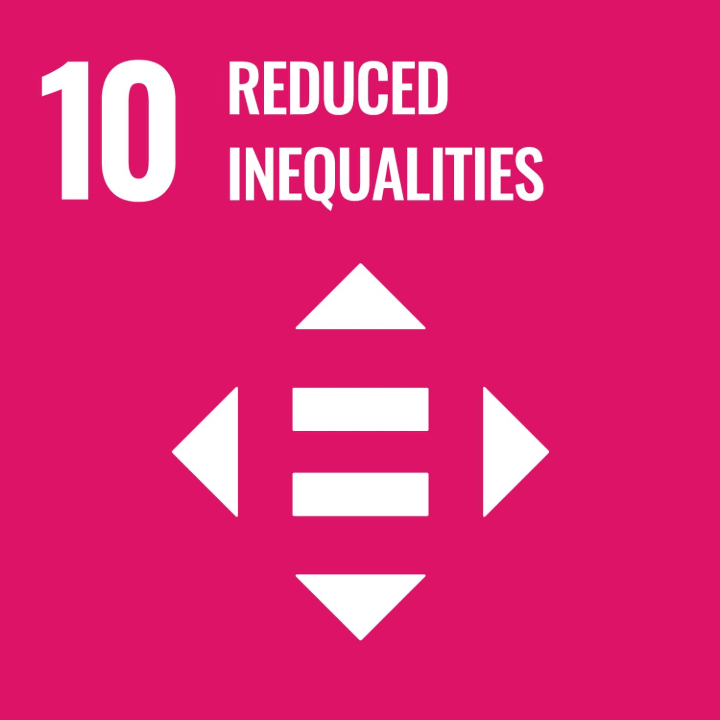
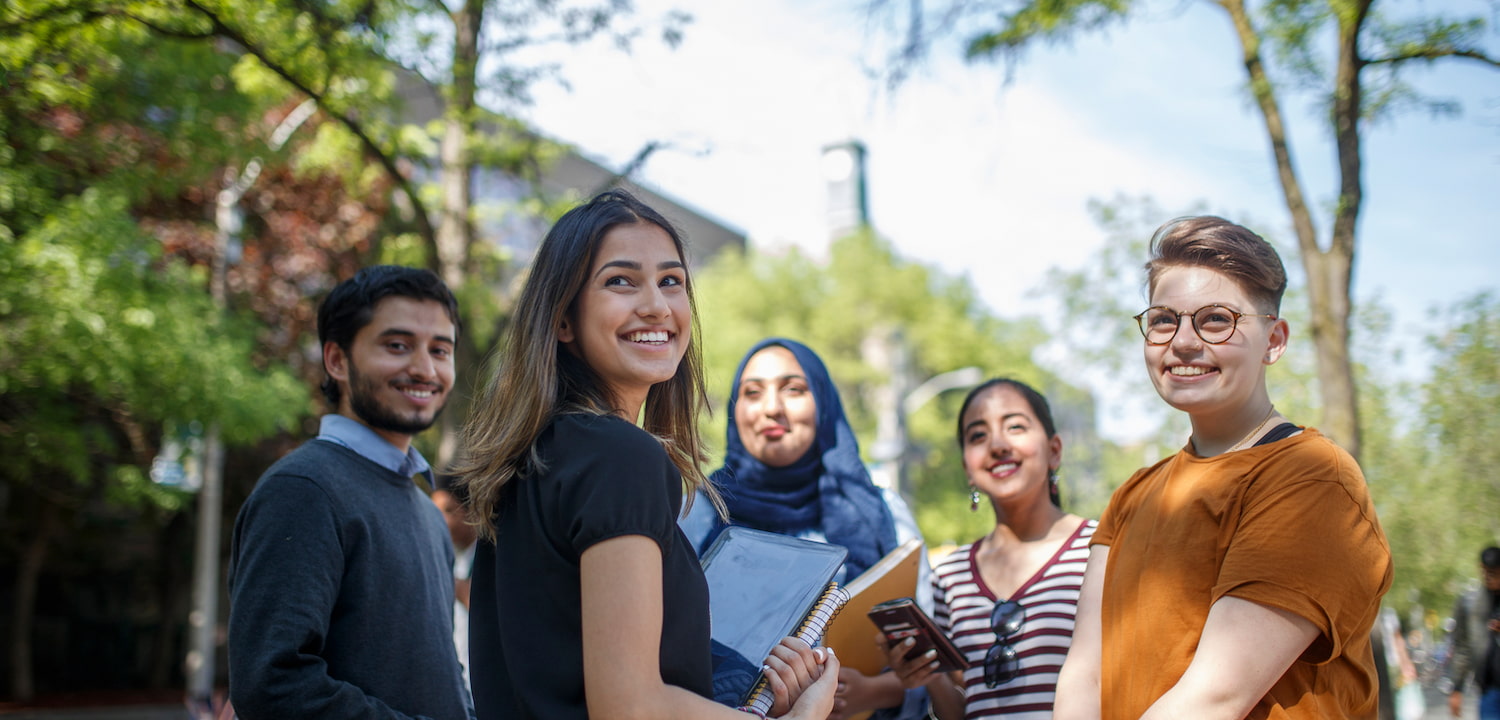
SDG 10: Reduced inequality within and among countries
TMU tied for 78th among universities around the world in the 2024 Times Higher Education Impact Rankings for its work to reduce inequalities and remove barriers to access. The university scored particularly highly for the proportion of and supports for students and employees with disabilities.
Through the Office of the Vice-President, Equity and Community Inclusion (OVPECI), significant progress has been made to dismantle systemic barriers to support and empower all members of the TMU community. The mandate of OVPECI is to maintain a visible presence for equity, diversity and inclusion (EDI) and Indigenous values and experience as integral components across all teaching, learning, research, service and administrative functions of the university.
According to the National Survey of Student Engagement (2020), 44% of our students are from families in which no parent has completed a bachelor's degree or higher degree at university.
Tied for 78th place in the world on SDG 10: Reduced inequalities (2024 Times Higher Education Impact Ranking)
In 2022, 13% of our students and over 7% of our employees indicated they have one or more disabilities.
Our goals in action
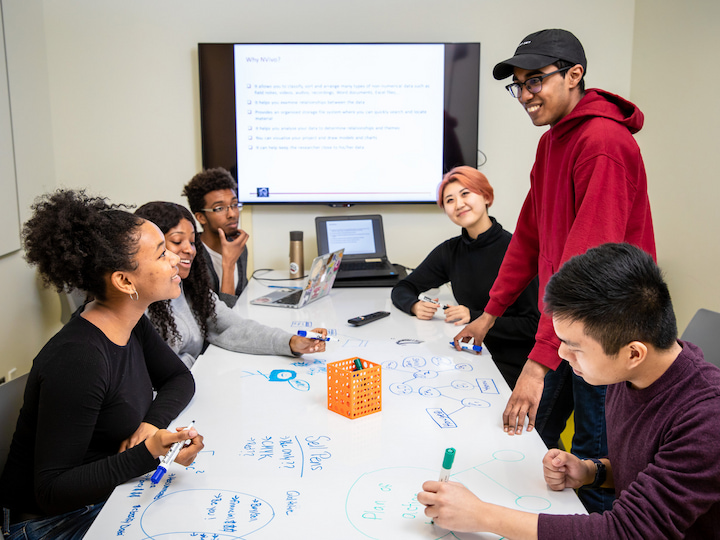
Access to education can transform lives and communities. TMU is committed to providing access to education, particularly to those from marginalized, underrepresented and equity-deserving groups. TMU continues to create an environment that actively removes barriers to participation. We foster partnerships, programs and initiatives that make education more accessible to all students. This includes lifelong learning and expanding our individual and collective horizons through professional development and learning opportunities that meet students’ needs.
- The Office of Social Innovation’s Sanctuary Scholars Program supports students with precarious immigration status and enables them to overcome significant barriers and contribute their gifts and skills positively to their communities.
- Academic Accommodation Support provides resources, education, training and services related to academic accommodation plans to ensure students with disabilities have an equal opportunity to access and participate in higher education.
- TMU has also made investments in the exemplary work of Black scholars and has created pathways for prospective Black faculty through the Black Scholarship Institute and Postdoctoral Fellowships for Black Scholars.
Led by intellectual curiosity and a desire for sustainable change, TMU researchers are creating evidence-based solutions for real-world transformation. Our faculty and students are willing to defy convention as they seek to make the world a better place for all. As a globally connected urban university, we believe that inclusive and collaborative approaches are essential to great research. To that end, TMU is committed to cooperation and partnerships with diverse communities, industry, stakeholders, and government. TMU researchers are building on the success of these partnerships as we continue to forge new ones.
- The Canada Excellence Research Chair (CERC) in Migration and Integration program produces innovative and usable knowledge on the links between migration and post-migration processes, forced and voluntary mobility, internal and international migration, and the role of countries of origin and transit.
A major strength of our university comes from the diversity in our TMU family, which reflects the very essence of the Greater Toronto Area, the diverse, multicultural community we call home. Additionally, we recognize the relationship between the social and physical environment and disability, focusing on solutions to remove barriers. All students, staff and faculty are respected and appreciated as valuable members of the TMU community, and a commitment to equity is embedded in our everyday thinking and actions.
- The Accommodation for Person with Disabilities Policy applies to any university employee with a disability, and to job applicants that may require accommodation during the selection process.
- Access TMU is a university-wide initiative with a goal of removing barriers to the full participation of all community members with disabilities.
- The Discrimination and Harassment Prevention Policy provides direction to the university community on human rights matters, including the prohibition of discrimination and harassment with respect to the university’s delivery of educational services to students, employment of faculty and staff, and the provision of housing to students on the basis of the protected grounds.
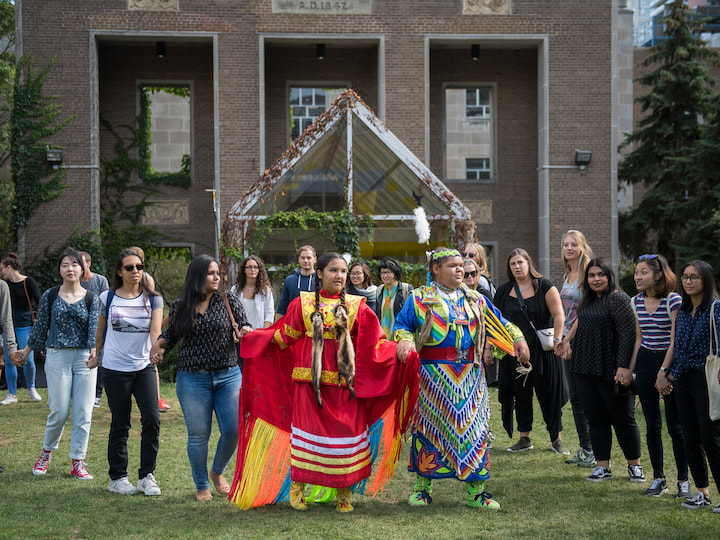
A critical component of the student experience is the creation of accessible, inclusive and engaging learning environments for a diverse student population. This involves examining how learning occurs and using a range of teaching practices and spaces to engage students. Inspirational teaching, an empowered faculty and staff, diverse learning environments and global experiences are components of the very best student-centred experience. This experience is uniquely TMU, and it prepares graduates to thrive in the world beyond the university.
- Gdoo-maawnjidimi Mompii Indigenous Student Services offers culturally supportive programs and support that balance academic excellence with traditional teachings and culture, addressing barriers to post-secondary education for Indigenous students.
- The Presidential Implementation Committee to Confront Anti-Black Racism has made significant investments in events and initiatives that centre Black students and promote Black flourishing on campus.
TMU is committed to the success of its community by creating a safe, secure, collegial, healthy, and inclusive environment that puts people first, is supportive of the whole person and enhances the development of physical, mental, emotional, and spiritual well-being. Well-being is fundamental to positive social and academic outcomes and healthy communities. It focuses on the strengths individuals bring to our community, honouring and learning from each person’s lived experiences. It involves creating welcoming, accessible and accommodating work, learning, and social environments.
- TMU’s community networks are made up of students, faculty and staff from across campus and provide representation of a diversity of perspectives and experiences. Members work together to foster community, create more inclusive spaces and address barriers on campus.
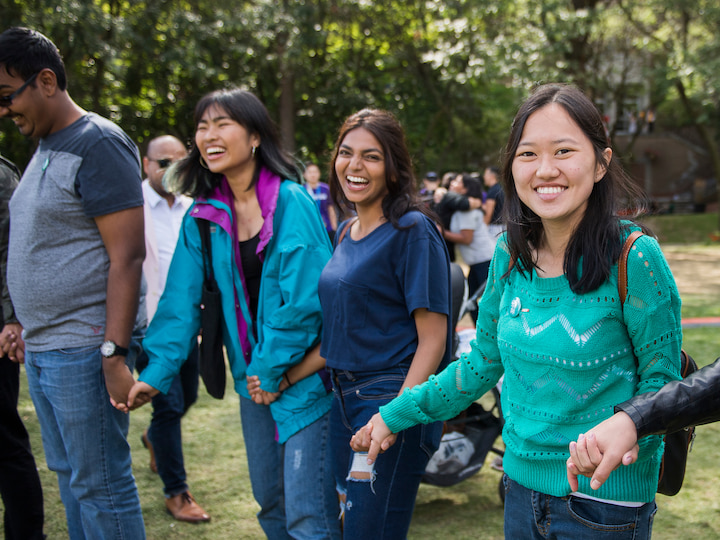
Stories
